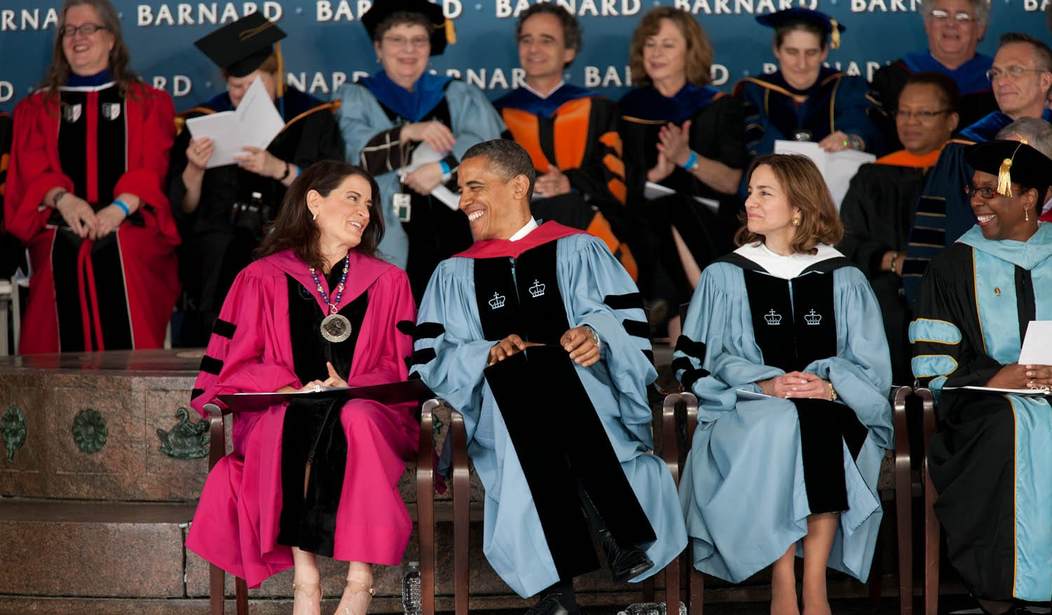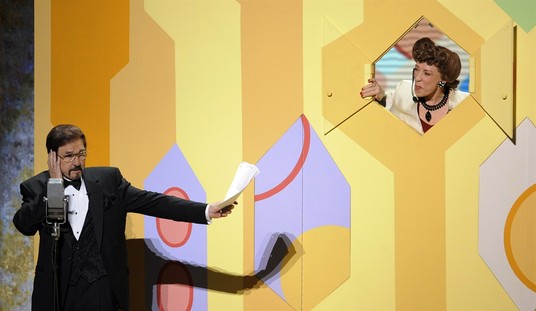Anyone who has followed academic issues since the anti-intellectual 1960s knows that the university is in serious trouble, catering to a professoriate that has bought into the travesty of “social justice” a coercive ideology obsessed with “victim groups.”
The university’s ancestral mission of pursuing truth has been replaced by a species of social engineering and leftist indoctrination. At the same time, it views its mandate as establishing a “safe space” for a student clientele that spends far too much of its time and energy “wringing its hands over pronouns, gluten and microaggressions” rather than devoting itself to the rigors of study and the acquisition of honest merit. These impoverished souls have come to be known as “snowflakes,” justifiably.
One of the most revealing indicators of the university’s failure to consistently produce able-minded graduates is the institutionalizing of disability accommodation through adapted exams and other measures implemented by Student Access Services. The intention was originally a laudable one: to help otherwise capable students with serious or crippling infirmities to further their academic careers with every reasonable chance of success. Like many noble endeavors, it soon tumbled victim to the law of unintended consequences.
Within a very short period, disabilities multiplied like rabbits on steroids. A poor memory became a disability, for which students were allowed to bring a “Memory Aid” to exams — once called “cheating.” Fear of exams became a disability for which the student could be permitted to write at home. Bipolarity became a disability for which a student could request assignment deferrals and forgiveness for class absences, sometimes amounting to credit received for a course almost never attended. Habitual time-stress became a disability for which extra writing time would be allotted. Students who are unequal to the task of listening to and summarizing lecture material can request a “note-taker” conscripted from the student body — a permit which entails a host of obvious pragmatic and pedagogical perplexities.
Scent allergies became a disability, requiring teachers to abjure cologne or provide the student with an unoccupied room. Difficulty with normative procedures became a disability requiring advance course outlines and transcriptions of what are called “alternative format materials.” Dyslexia became a disability akin to blindness. A note from a psychologist reporting a student “under my care” can be used to set aside academic criteria and official class deportment.
Almost every conceivable inconvenience that most of us dealt with individually in our day as students has become a disability needing singular accommodation — a sequel glossed over by the typically bland and misleading language of Access documents stressing “academic integrity” and respect for “standards of achievement.” The discrepancy between word and act is glaring. A “letter of attestation” provided by the Service acknowledges the teacher’s authority; the fact is that her authority is progressively undermined as the student’s demands take precedence over the teacher’s prerogatives.
To cope with the deluge of disability claimants, university Access services have ballooned since their founding only a decade or so ago. The dozen or so office personnel who labor under an unmanageable load at my wife’s university have to produce thousands of adapted exams. The bureaucratic machinery needed to process the epidemic of dysfunction is subject to engine meld. Adjustments in scheduling, teacher availability, the shuffling of classrooms, calls for the provision of exam questions even before a course is over, the furnishing of hardware devices and software programs, and the according of grades for unsubmitted, massively delayed, partially completed or defective work has placed the entire academic project in jeopardy. I estimate on the basis of figures I have privately reviewed that approximately 10 percent of the student body benefits from special privileges.
The consequences do not stop there. Decent, hard-working students — in any event, those who remain — see their grades effectively devalued like a currency. Productivity is not rewarded and morale is sabotaged. Responsible teachers (who, incidentally, are not informed of the nature of their students’ disabilities or of the specialized equipment and constraints demanded) find that their workloads have increased, that the directives issued are often non-compliable (e.g., my wife has received demands for, among other things, an ergonomic chair in the classroom, an item she cannot procure), and that they are always in peril of falling afoul of a blizzard of mysterious regulations.
The fact is that professors are no longer in charge of their own classrooms. External administrators and government officials make decisions about how they must conduct their teaching and which students they are allowed to fail. In a startling case, Heinz Klatt, a professor at the University of Western Ontario (pretentiously rebadged as Western University), was prohibited from failing a psychology student whose mental retardation (now called “intellectual disability”) prevented her from fulfilling the course requirements. The faculty dean changed her F to a B.
Who or what really benefits from such accommodation is an open question — not the university’s academic reputation, not disciplinary scruple in the classroom or optimal learning for the dwindling residue of achievers, not the organization that may hire the student, and certainly not the student herself who will be unable to prosper in the professional position for which she has sought accreditation.
Most alarmingly, teachers are vulnerable by law to frivolous allegations of misconduct from aggrieved or vindictive students, which may result in a teacher having to face an extramural Social Justice Tribunal with the power to levy significant fines and tarnish or destroy a reputation. My wife has been summoned before the Social Justice Tribunal of Ontario in response to a disability grievance, which on any rational assessment is without foundation. Universities, and the governments which finance and control them, are endowed with the authority to “disable” a person’s life on the flimsiest of grounds. Such is the ironic form of disability — the deliberate disabling of those who are not disabled.
The practice of disabling the able — or potentially able — is now a prominent feature of university protocol, pertaining not only to the remnant of honorable professors but, as mentioned, to a generation of students increasingly consumed by progressivist memes and fundamentally non-academic issues, valorizing feeling over thought and sociological canards — the “rape culture” and “white privilege” fantasies chief among these — over actual learning, study and research. Distressingly, we have reached the point where a student can have a teacher punished or fired for a trivial or non-existent offense but a teacher cannot recommend that a student be expelled for breach of academic conduct or violation of a civil code of behavior. Students have begun to control the parietal agenda.
Thus, it is by no means surprising that students at Barnard College are agitating for a transgender woman of color to serve as the institution’s next president. Intersectional identity euchres mere qualification, another “disability project” sure to meet with stunning success. Similarly, why affect astonishment that students, with the blessing of the Penn State English Department, have replaced the iconic portrait of Shakespeare with that of the self-described “black, lesbian, mother, warrior, poet” Audre Lorde, who could not tell the difference between a poetical object and a polemical tract? It is no longer a question of actual, imagined or exaggerated disability but of a criterial pathology which favors mediocrity over accomplishment and ideological purity over professional capacity.
Indeed, disability at every level is the name of the game, the incubator for societal collapse. It has spread out of the academy into the culture at large like James Rollins’ Sixth Extinction, a virus based on the arsenic of ignorance and the iron phosphate of impregnable self-indulgence. It is, as I’ve suggested, not only the overweening solicitude for those who experience, or who claim to experience, one or another disability that has brought the university into disrepute. It is the general weakening of academic standards, the watering down of the curriculum, the profusion of bogus courses, the focus on political indoctrination, the Bowdlerizing of history and the substitution of pedestrian ciphers for true greats that is turning the university into a caricature of its original educational and civilizing purpose. It is an institution no less disabled than many of the students its cossets and graduates.
Think of this when your doctor has to consult an index card to refresh his memory or your accountant suffers a nervous breakdown when confronted by a complicated tax return or your child’s grade-school teacher cannot write an intelligible report card or you have to sit through a poetry reading by a poet who never mastered basic grammar or you meet an esteemed professor of classical rhetoric who cannot read Aristotle in the original or your lawyer proves ignorant of legal procedure or the bridge you’re driving over starts to sway and groan. These are not fanciful episodes; I can attest to them. And they are multiplying at a shocking rate.
In Push Back: Reclaiming the American Judeo-Christian Spirit, Rabbi Aryeh Spiro admonishes us to “push back against an unrelenting and programmed assault by liberal demagogues co-opting our schools and colleges.” Regrettably, we “have not fought back nearly enough” — perhaps because we too have been disabled by the propaganda of the Ivy League left and a terminally disreputable media, having ceded both our saving skepticism and moral language to them. We, too, historically speaking, have memory issues, and may have grown allergic to hard thinking. We, too, have frittered away our native endowments.
When the university succumbs to the disability prepossession across the board, the culture itself is at risk of intellectual and functional decay. It grows progressively disabled, incapable of dealing with reality, of managing its economic affairs, of recognizing its enemies, of absorbing adversity, and of disambiguating truth from error, fact from fiction and nature from ideology. Unfortunately, there is no superordinate Disability Office to appeal to, from which we can demand or expect the false magnanimity of concessionary privileges — which would, in any case, merely compound the syndrome from which we suffer.
Philosopher Alfred North Whitehead in The Aims of Education struggled with the conundrum of effective priority regarding education and culture. Where does change begin, he wondered, with culture or education? — a question he was unable to answer satisfactorily. It is reminiscent of the enigma of whether nature or nurture is the determining factor in human development. Clearly, both elements are differentially in play. But the university, as the feeder institution for the society it ostensibly serves, is a more cohesive locus than the environing atmospherics of culture as a whole and can be addressed with greater analytical precision. One thing is certain. If it cannot return to scholarly health, the cultural malady threatens to become permanent. And the F will remain an F.










Join the conversation as a VIP Member